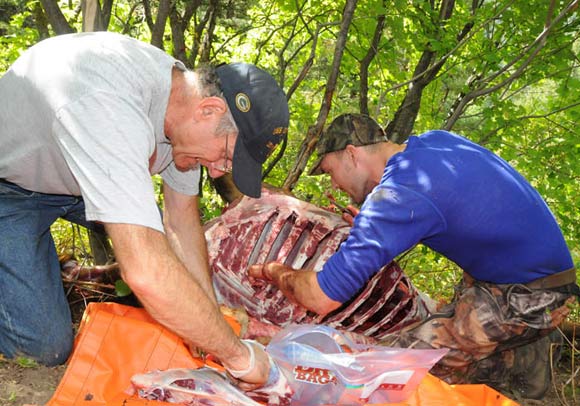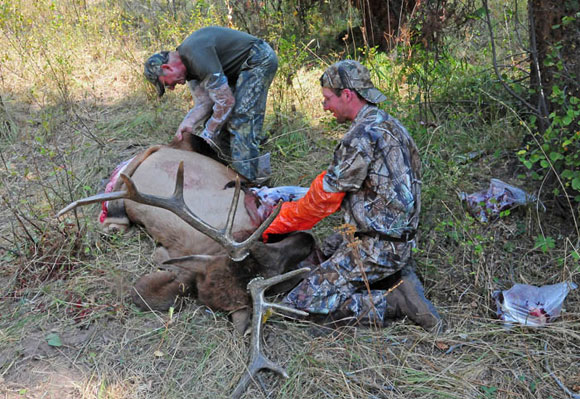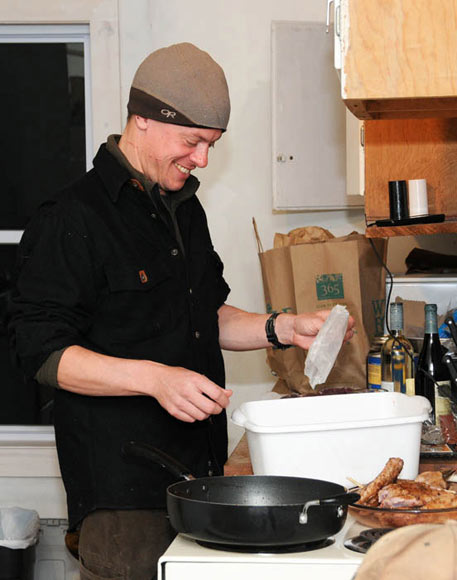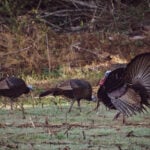LAST UPDATED: May 1st, 2015
A recent study provides fascinating insights into why hunting might be growing in popularity in the United States after declining for much of the past 35 years.
I’m not talking about the “2011 National Survey of Fishing, Hunting, and Wildlife-Associated Recreation,” which is conducted every five years by the U.S. Fish and Wildlife Service. Although the F&WS survey also showed more hunters than in 2006, it collects little information to explain such changes.
No, I’m referring to a study by Mark Duda’s Responsive Management research group in Harrisburg, Va., which released a report last week titled “Exploring Recent Increases in Hunting and Fishing Participation.” Duda’s report was prompted by the F&WS survey, which caused many to wonder how hunting and fishing suddenly halted its long-term slide.
Duda reports that while there appears to be more hunting participation, it’s uncertain whether it’s a short-term annual fluctuation or a long-term trend. But at the least, the long-term decline has paused. So what’s behind it?.
If you’re hoping for simple answers, forget it. It’s likely a combination of several social and economic factors, such as more free time for some to hunt because of higher unemployment, and more opportunities to hunt for those with more expendable income. Perhaps the most interesting factor, however, is a noticeable increase in people who hunt “to obtain a natural or ‘green’ food, as well as to supplement food budgets.”
Hunting is attracting more young,independent people who consider wild game a great source of healthy, free-range meat.
In other words, whether it’s for practical, economic reasons, or the “cool” motivation of self-sufficiency, more people are viewing hunting as a legitimate way to obtain meat. And it’s not just older guys like me who feel this way. Duda reports that today’s new hunters are slightly more often female, younger, suburban, and in college or the military.
That’s gratifying news for those long motivated by hunting’s meat-gathering appeal. As recently as 1980, researcher Stephen Kellert at Yale University reported that hunting’s No. 1 motivation was “for the meat,” which 43 percent of his respondents cited.
That motivation soon after declined. When Duda’s Responsive Management group surveyed the nation’s hunters in subsequent years, the meat motivation dropped to 25 percent in 1995, and 16 percent in 2002 and 2006. Those totals placed meat acquisition second behind “for sport and recreation” in 1995. It then fell to last place behind “for sport and recreation,” “to be close to nature,” and “to be with family and friends” in 2002 and 2006.
In Duda’s latest study, however, meat motivation jumped to 35 percent, ranking it second behind “sport and recreation.” Not only do people hunt to supplement tighter food budgets, they also consider hunting part of the “locavore” movement, in which people seek natural, organic food sources close to home.
In recent years, more people are realizing that hunting is a natural, satisfying, self-sufficient way to acquire clean, healthy, free-range meat.
This philosophy has gained attention in recent years thanks in part to author Michael Pollan’s 2006 book, “The Omnivore’s Dilemma: A Natural History of Four Meals.” Not only was it a bestseller, but The New York Times and Washington Post named “The Omnivore’s Dilemma” one of the 10 best books of 2006.
Pollan had never hunted until writing this book, but describes in entertaining detail the challenges and rewards of hunting wild hogs in California as he learned firsthand how some Americans forage for themselves.
Meanwhile, author Steven Rinella has written three smart, engaging books since 2005 that describe his respectful approach to hunting and eating wild game. In addition to writing “MeatEater,” “American Buffalo” and “The Scavenger’s Guide to Haute Cuisine,” Rinella writes regularly for The New York Times, hosted “The Wild Within” on the Travel Channel in 2010, and is in his third season as host of “MeatEater” on the Sportsman Channel.
Author and TV host Steven Rinella cooks fresh rabbit after a successful hunt in southwestern Wisconsin in February 2011.
In other words, hunting has regained some of its legitimacy in recent years as folks realize it’s a natural, satisfying, self-sufficient way to acquire clean, healthy, free-range meat. As a result, it’s not uncommon for college students to join hunting groups and take learn-to-hunt classes.
This resonates with those of us old enough to remember the pride we felt when bringing home deer or small game to parents and grandparents who lived through the Great Depression and government-regulated meat rationing in World War II. As I cleaned rabbits and squirrels behind our home on Madison’s west side in the early 1970s, my paternal grandmother described how her family treasured each rabbit her brother or sons brought home during those dark times.
The more we revive such values today, the better we’ll sustain hunting for the future.

 By
By 






